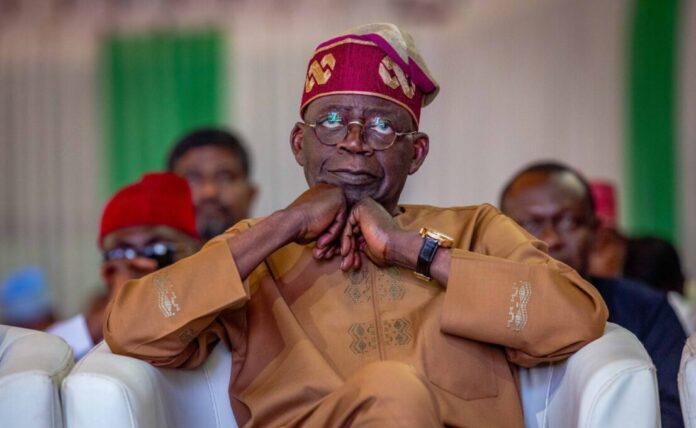Earlier this week, Nigeria’s president-elect, Bola Tinubu, returned to Lagos, for the upcoming governorship election billed to hold on March 11.
Though declared winner of the February 25 presidential and federal legislative elections, Tinubu lost Lagos state, his stronghold for the past two decades, to the Labour Party (LP).
As many commentators did not foresee the results in their forecasts and analyses, the Labour party polled 582,454 votes to defeat Tinubu’s All Progressives Congress (APC) which scored 572,606 votes.
Recall that he reportedly supported then-President Goodluck Jonathan of the PDP in 2011 despite having a candidate of his party, Nuhu Ribadu, of the defunct Action Congress of Nigeria (ACN), on the ballot and Jonathan, won the election by a wide margin.
For the first time since 1999, the godfather of Lagos politics lost his local government, Ikeja Local government area to the opposition.
SEE THIS:
- Sanwo Olu is shaking right now: Actress Beverly Naya reacts to Peter Obi’s victory over Tinubu in Lagos state
- 2023 Elections outcome: Peter Obi addresses world press conference
- Rigging Elections in Nigeria: A Political Masterclass
There are, however, palpable fears ahead of the governorship and state assembly elections as many political pundits argue that Tinubu may have to reevaluate his politics in the state.
The Labour Party have continued to be more vocal in inciting Lagosians against the APC and a major takeaway from the last polls is that the Nigerian electoral process is making incremental improvement.
Even when Tinubu had said that in politics, “you win some, you lose some”, March 11 will prove his strengths as the godfather of Lagos politics. Already, the ruling party’s candidate Governor Babajide Sanwo-Olu has been making last-minute efforts to ensure he wins
If the opposition wins Lagos, Tinubu would be the second president-elect that could not get his party in control of his home state. Recall that President-elect Olusegun Obasanjo lost his home, Ogun State, to the candidate of the Alliance for Democracy, Olusegun Osoba, in 1999.
Earlier this week, Nigeria’s president-elect, Bola Tinubu, returned to Lagos, for the upcoming governorship election billed to hold on March 11.
Though declared winner of the February 25 presidential and federal legislative elections, Tinubu lost Lagos state, his stronghold for the past two decades, to the Labour Party (LP).
As many commentators did not foresee the results in their forecasts and analyses, the Labour party polled 582,454 votes to defeat Tinubu’s All Progressives Congress (APC) that scored 572,606 votes.
Recall that he reportedly supported then-President Goodluck Jonathan of the PDP in 2011 despite having a candidate of his party, Nuhu Ribadu, of the defunct Action Congress of Nigeria (ACN), on the ballot and Jonathan, won the election by a wide margin.
For the first time since 1999, the godfather of Lagos politics lost his local government, Ikeja Local government area to the opposition.
There are, however, palpable fears ahead of the governorship and state assembly elections as many political pundits argue that Tinubu may have to reevaluate his politics in the state.
The Labour Party have continued to be more vocal in inciting Lagosians against the APC and a major takeaway from the last polls is that the Nigerian electoral process is making incremental improvement.
Even when Tinubu had said that in politics, “you win some, you lose some”, March 11 will prove his strengths as the godfather of Lagos politics. Already, the ruling party’s candidate Governor Babajide Sanwo-Olu has been making last-minute efforts to ensure he wins
If the opposition wins Lagos, Tinubu would be the second president-elect that could not get his party in control of his home state. Recall that President-elect Olusegun Obasanjo lost his home, Ogun State, to the candidate of the Alliance for Democracy, Olusegun Osoba, in 1999.





